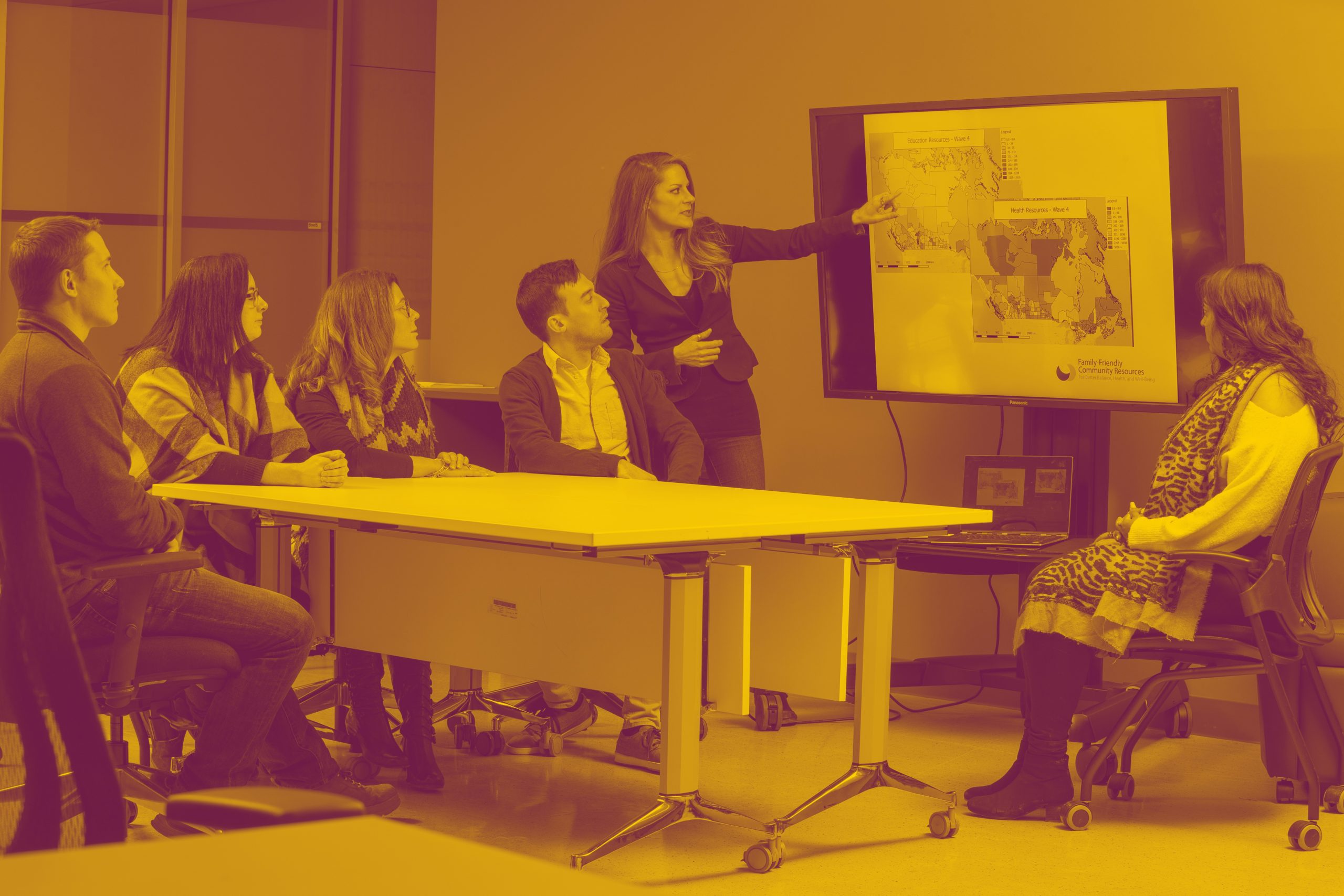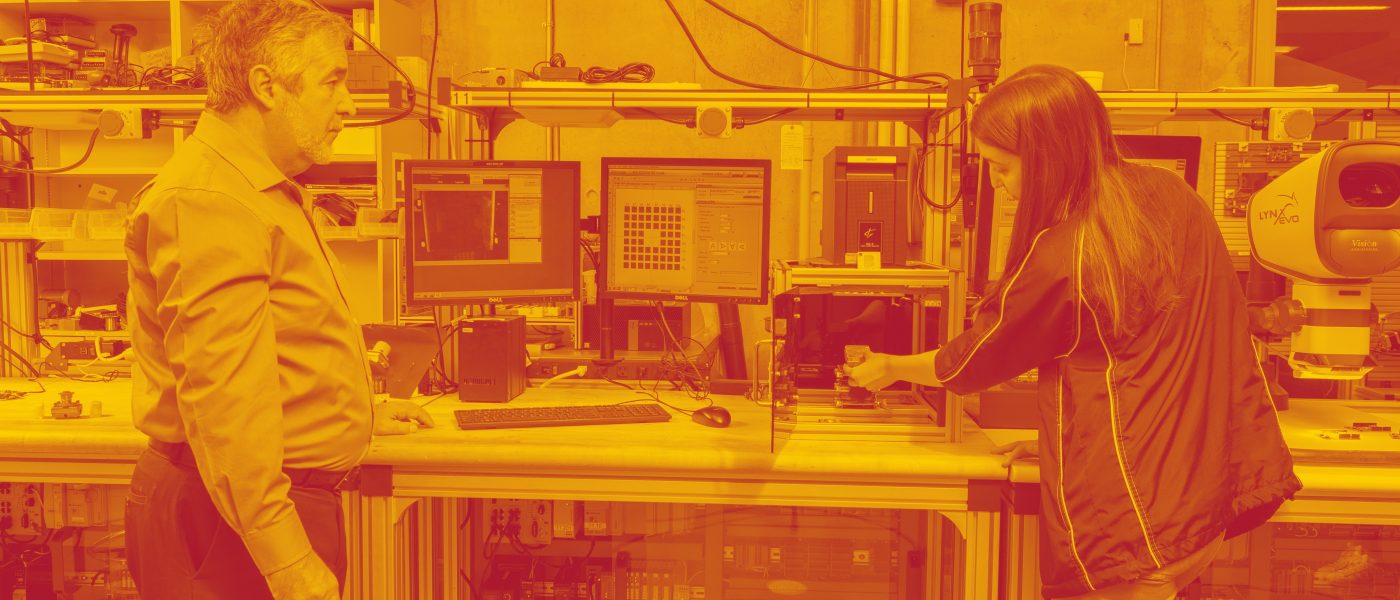Active and Flexible Learning Spaces
Explore our two themes areas to develop active and flexible learning spaces.
The spaces where our instructors teach and our students learn have an important impact on the overall learning experience. We want to think of learning spaces as more than just desks and chairs. We need to have a wide array of spaces that serve the needs of our instructors and students—this includes spaces that are tech-integrated, community-based, modular, virtual and more.
Objectives
- Develop best practices for learning that are focused on the intentional consideration and integration of on-campus learning spaces (classrooms, labs, studios), online learning spaces, and community spaces for learning.
- Review and update the scheduling process so it is pedagogically-focused and reflects a changing environment and the current teaching and learning needs.
- Design new physical and virtual spaces to be universally accessible, meaning they are designed to be supportive, barrier-free, mental health positive, and adherent to policies relating to health, safety, accessibility, and inclusion while respecting diverse ways of knowing.
We recognize how online and virtual classrooms have changed the teaching and learning environment for both our educators and our students. We’ll be taking a pedagogical and evidence-informed approach to make decisions about tools, platforms and approaches that can help us optimize learning.
Objective
- Develop and implement a clear Digital Learning Strategy that enhances and complements the face-to-face learning experience.
Resources

MacPherson Institute: Teaching Remotely Resources Learn More
This webpage will help you to explore creative ways to use remote teaching tools to deliver engaging and comprehensive undergraduate and graduate programs.

Online Learning Resources for Students Learn More
Developed in partnership with UTS and the Student Success Centre, this page is the place to find recommendations, tips and resources for online security, University-provided software and more to support your online learning!

Campus Classroom Technologies Learn More
Campus Classroom Technologies (CCT), formerly CAVS, is responsible for the design, installation, and ongoing support of audio-visual equipment in all Registrar-controlled classrooms.
Looking to find information about teaching and learning spaces on campus? Check out our new and improved Campus Classroom Directory.

